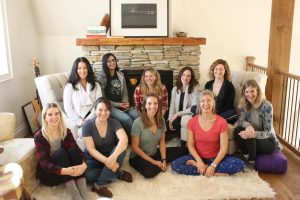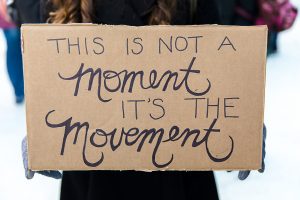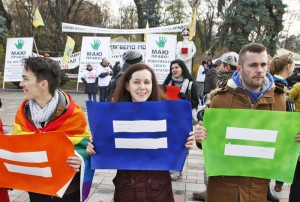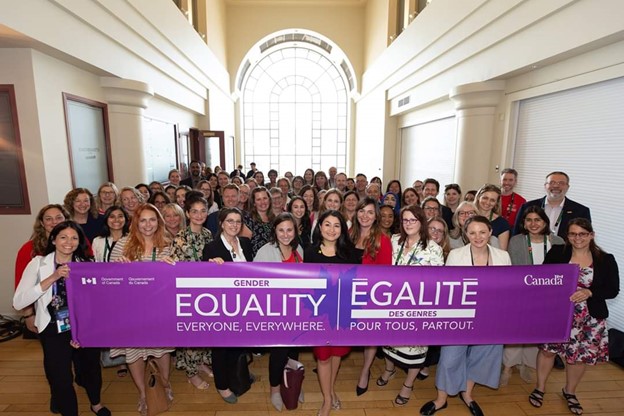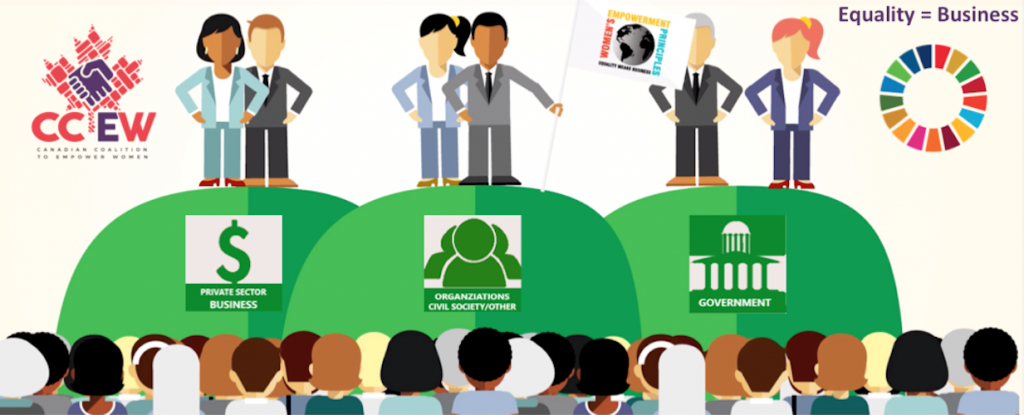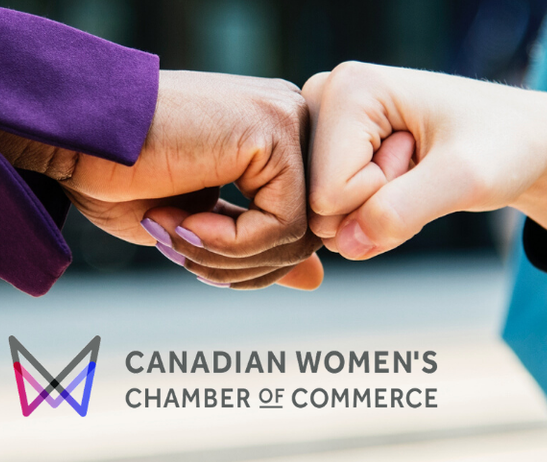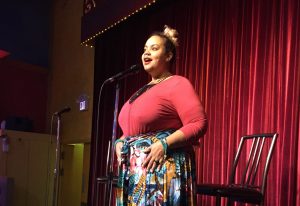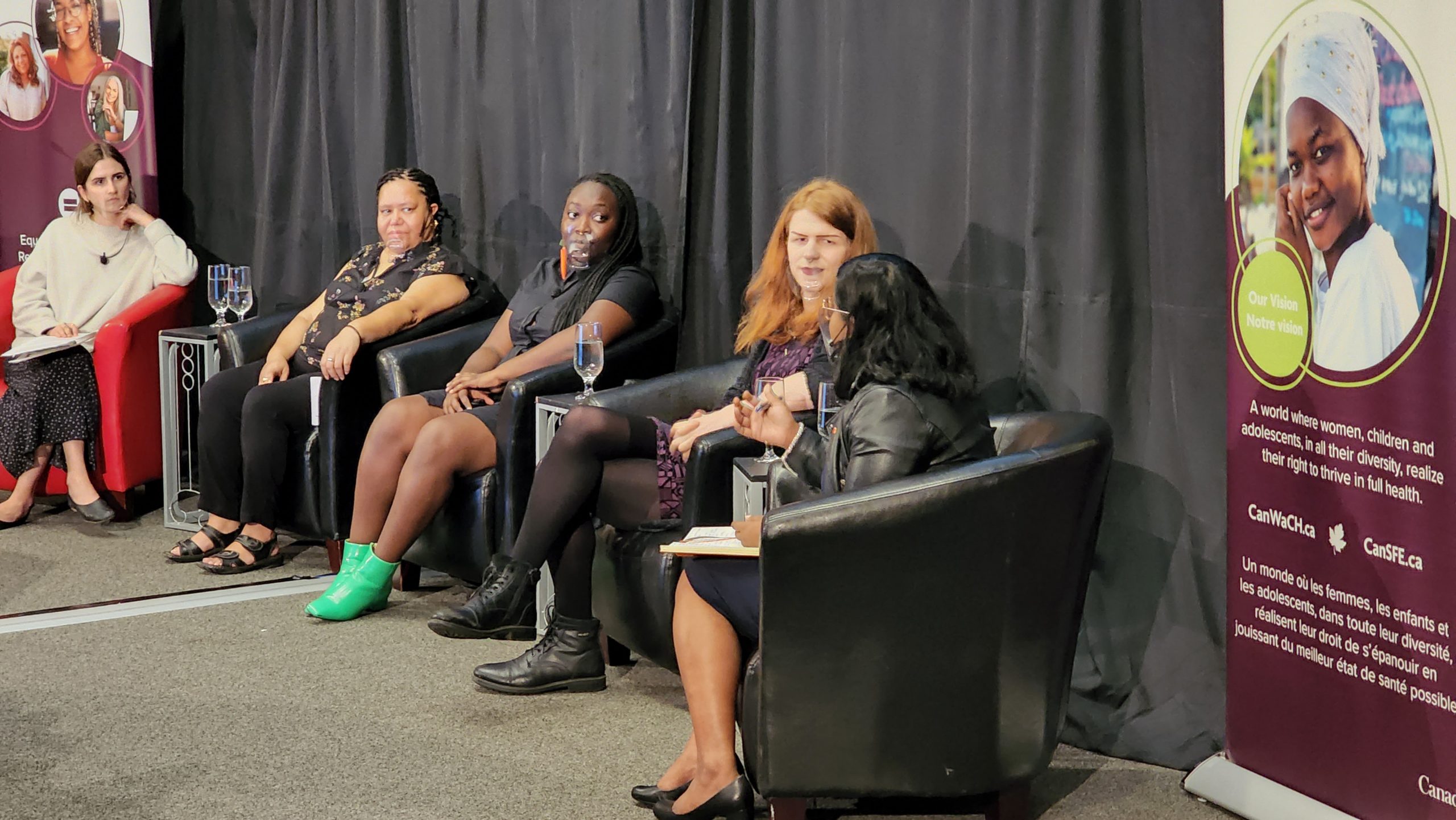
Big tent gender equality events are high wire acts.
They involve juggling multiple feminisms plus deft handling of picky funders and powerful politicos in the room. It also requires mastering the aerial feat of balancing the needs and expectations of two distinct changemaking cultures—non-governmental organizations (NGOS) and grassroots feminist organizations.
The recent and first Equal Futures 2022 Gender Equality Summit, aced the first two. The latter? Not so much.
NGOs are insiders, researchers, and focus on mobilizing government. They prefer polite, parliamentary style interaction and connecting over LinkedIn. Grassroots feminist organizations are outsiders, revolutionaries, and work to mobilize people. They crave voice, action and prefer to connect in more informal ways—like a hot tub after hours.
Of the 10 leaders of organizations and student attendees interviewed, all agreed that the format and ambience was pretty institutional, meaning top down and polite, with little room for attendee-led discussion or debate. No action plans or collective next steps were co-created. Panel moderators did not make space for questions, comments or counterpoints from the lecture hall’s continuously seated audience, in which case, we could have saved travel costs, and simply watched the moderators and panelists talk among themselves on ZOOM.
However, there were bright spots.

On the second day, Shaneese Steele, a 28-year-old Mukaade Anishinaabe Kwe (Afro-Indigenous person) took to the stage to lead over 100 BIPOC, Black, Muslim, LGBTQ, Queer and White participants in a two-hour talk about how to be an Indigenous ally. Addressing the diverse crowd of predominately Gen+Z and Millennial folks, Steele began by presenting Canada’s indigenous history.
Not long after her presentation began, a woman in the back (let us call her Justine) broke the Ted Ex flow and asked for the mic. “With respect” she said assertively, “I have to tell you your definition of Metis people is incorrect.” Steele received the outburst as a gift. However, there were more gifts to come from Justine: A self-identified Alberta-based, Blackfoot, indigenous activist, traumatized mother of four, forty plus woman at the back of the room who made it clear that she didn’t just study the history with the intensity of a scholar; She had lived it–and still lives it today. Justine didn’t–wouldn’t– let anything slide. Justine was not going to go unheard. Her interjections were just the kind of thunderclaps needed to change the energy in the room.
Just like that, the two-hour session transformed from being a institutional workshop—to a truly messy, emotional, interrogative feminist space. Many hands went up. Folks of all genders told their stories. Sometimes tears were shed. Steele embraced the flow and transformed from speaker to facilitator.
Indigenous history and the nature of feminist and ally work was not just learned that morning. It was felt.
You can’t get that stuff on ZOOM. It made attending in person worthwhile.
The rest of the summit was more conventional in format and experience.
It featured a stellar lineup of NGO CEOs and other organizational leaders, not one but two Liberal Ministers (The Honorable Marci Ien, Minister for Women and Gender Equality and Youth (WAGE), The Honorable Harjit Sajjan, Minister of International Development) and a former WAGE Minister, Maryam Monsef. Monsef lost her home riding seat (Peterborough) in the last election. Her message was about rest and the impact of burnout on progress and the sector.
Hella yes to that.
Other bright spots included the incredible knowledge and insights shared by top tier panelists and keynote speakers. Key insights and calls to action include:
Erosion of democracy leads to the erosion of women’s rights
Panelist Meghan Doherty, Director of Global Policy & Advocacy for Action Canada for Sexual and Reproductive Rights says “We cannot rest easy.”
The panel on Health and Gender Equality cautioned participants not to underestimate the impact of this emerging double whammy: The weakening state of democracy coupled with the leaked U.S. Supreme Court draft opinion regarding Roe v. Wade will ultimately erode women’s reproductive rights globally. That includes Canada. Citing Poland’s recent decision to create a pregnant woman registry as an example, panelists agreed the number of nation states providing access to safe, affordable, shame free abortions could be expected to decline. The panel reminded everyone that while abortion is a legal procedure in Canada, access can still be deeply undermined if political will was so inclined.
The recent occupation of Ottawa by the so-called, trucker led, Freedom Convoy and rise of the alt right in Canada shows that democracy is also subject to attack in Canada. History, past and present, shows that when democracy weakens, so do women’s rights and freedoms.
We need anti-hate legislation now
“I have been an LGBTQ+ activist for eight years now and I don’t think I’ve ever been so scared,” says Fae Johnstone, a trans woman, small business owner, feminist, writer, and Executive Director of Wisdom2Action, an 2SLGBTQ+ advocacy organization.
Johnstone adds “I don’t think we have fully opened our eyes to the degree of backlash that is coming in the very near future. We know there are far right groups who, today, specifically target school boards, lobbying for policies that are harmful to queer and trans youth.”
Canada is home to 100,815 people who are transgender or non-binary, including 31,555 who are transgender women. As awareness of trans folks increases, so does trans hate. Panelists agreed that Canada urgently needs to monitor all forms of hate and move forward on creating strong anti-hate legislation.
Let’s shift the relationship between grassroots organizations and institutions
“Grassroots movements have forced us to think differently about policy and I think we need to give these groups more credit,” says Anjum Sultana, Plan International Canada.
Our decades old legacy civil society institutions were a part of our white supremacist, colonialist past, and today, are often still part of the problem. Working more closely with grassroots groups, investing in local organizations, and directly funding these organizations will help us identify, amplify and implement ideas that often don’t get enough credit. “
It’s all connected
“So, Ghana introduced an anti-LGBTQ+ “family values” Bill in August 2021. When you read it, you see right away that it wasn’t homegrown,”says Debbie Owusu-Akyeeh, a Ghanian-Canadian and Executive Director for the Canadian Centre for Gender and Sexual Diversity (CCGSD)
The Bill was, for all intents and purposes, a copy of a similar bill introduced in the U.S. “If this law can successfully pass in Ghana, considered a to be like a social justice golden child in Africa, this type of bill can be fair game for every single country on the continent.
Feminist groups in Canada need to pay more attention to happenings on the international stage because it informs what we may experience here.

What happens next?
The Equal Futures Summit, funded and coordinated by Equal Futures Network (a project of CanWaCH) may not have met everyone’s expectations, but Julia Anderson, CanWaCH CEO, was pleased with how it all went down.
“I was so energized to see how people didn’t just show up, they were truly ‘present’. To me, this is critical as the road ahead is going to require us to continue to work hard together through the ever-growing challenges,” says Anderson.
There will be more big tent events to come.
The Summit reminded us why rebuilding our capacity for effective feminist organizing and creating spaces for learning and dialogue in Canada is both medicine for what harms us today, and a bridge to the future.
The Gender Equality Summit was a strong, post pandemic lock down event where in addition to seeing each other’s feet for the first time in two years, we saw each other’s feet, and together, watch them take a first collective step.
Related Reading

The Forgotten Feminist
Shaena Lambert uses fiction to tell the true story of the revolutionary Founder of the German Green Party, Petra Kelly
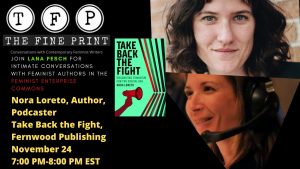
Has Feminist Organizing Stalled?
An author argues that feminism needs coordinated leadership.

Meet Gudrun Schyman: Likely the Most Important Feminist You’ve Never Heard About
Feminist parties are making a comeback in Europe. But why? New LiisBeth contributor Annika Anderson flew to Sweden to find out.






